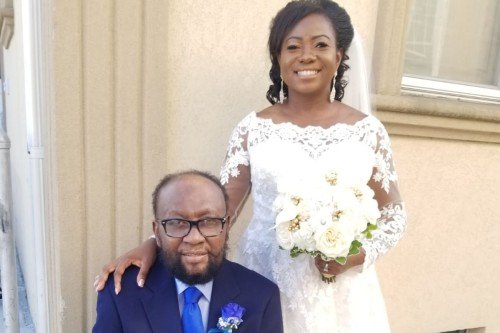
In honor of Black History Month, we spoke with Memorial Sloan Kettering breast surgical oncologist Tracy-Ann Moo about the challenges of being a person of color in medicine — especially in the age of COVID-19.
The most recent data from the Association of American Medical Colleges say that in 2018, just 5 percent of practicing physicians identified as Black. Why do you think that is?

I think this has a lot of layers, but a big part of it stems from underlying economic racial disparities. There is a wide income gap between Black and white families. Being able to go down the long path to becoming a physician takes a lot of financial resources. I was the first doctor in my family and could not have achieved this without financial support outside of what my family could provide. The good news is there’s a lot of determination in the field to change this. Many schools make an effort to enroll a diverse student body and also take into account economic disadvantage. But this effort must be sustained to really make a difference.
Do you find there is hesitancy in the Black community to get the COVID-19 vaccine? How do you handle that?
What I try to do is educate. I try to educate my own family. I try to educate my patients, our staff, and anyone else who will listen to me. I pay particular attention to people of color because the virus affects us so much more in terms of hospital admissions and mortality. Ironically, people of color are also the least likely to sign up to get the COVID-19 vaccine. Some of this hesitancy stems from mistrust of the vaccine development process, and so I try to explain that these vaccines have gone through the same rigorous testing as other vaccines. At MSK, we have a Black faculty group that is participating in outreach and vaccine education among our employees of color. I’m finding that although many people are skeptical at first, they become more open to getting vaccinated after we discuss their concerns. I also share that my mom and my aunts have gotten the vaccine. A personal story helps.
Do you see yourself as a role model?
I do see myself professionally as a role model, not just for my family members but for a lot of young Black women as well. I feel a certain responsibility to be successful and to make sure those who come after me are also successful. I especially want to show young Black girls that it’s possible to aspire to a profession even when most people in that profession don’t look like you.
Do you think how we talk about race, both here at MSK and in the world, is changing?
Al Roker on mistrust of the health care system
It’s never too late for a good start. I feel like it’s OK to be more open about the struggles you face as a Black person in America today than it was a year ago. That freedom of expression will hopefully translate to change. It’s nice to get an open acknowledgment from medical organizations that racism exists and that it won’t be tolerated, whether it’s among employees or from patients toward providers. MSK takes a strong stance against racism and it feels good to work for an organization that supports this important issue.


